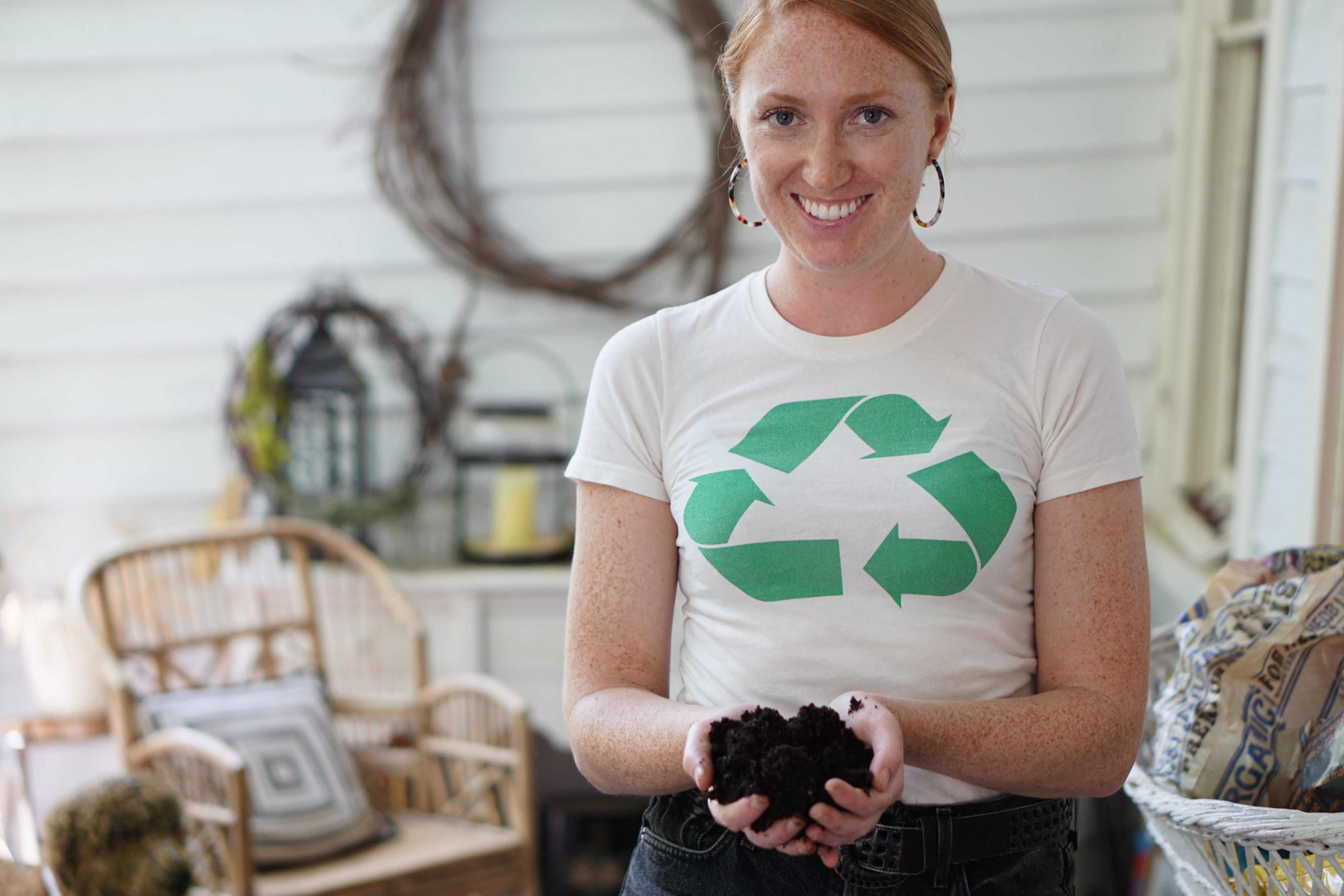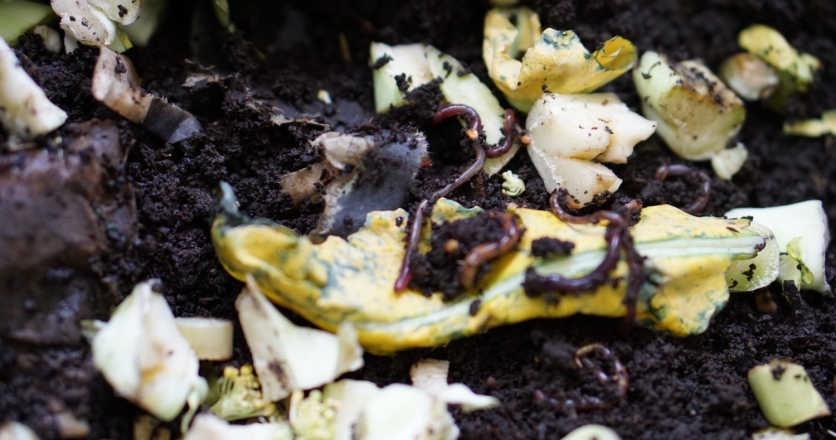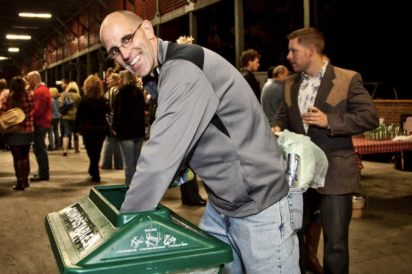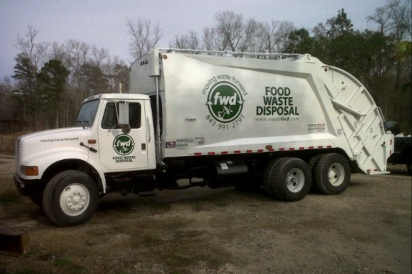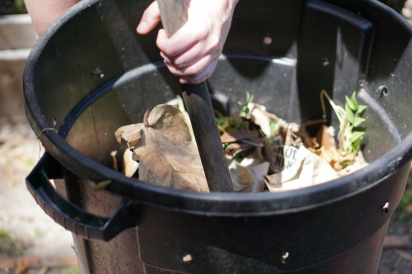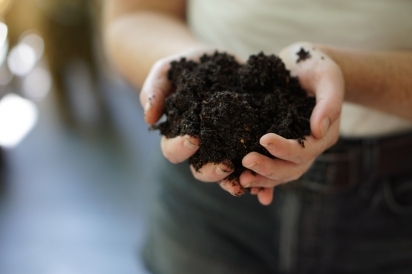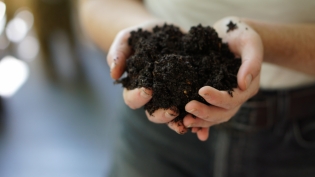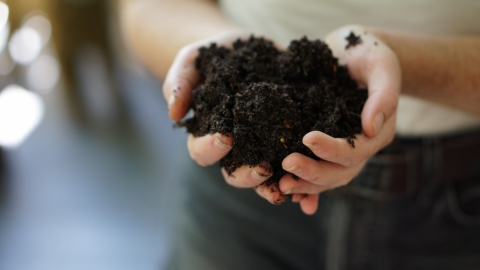Do The Rot Thing
I didn’t grow up composting. It wasn’t until my experience as a student at the College of Charleston that I became enamored with concepts of sustainability, permaculture and mindfulness, and began pondering the true cost of food waste. I have been a devoted composter for more than a decade now and am lovingly referred to by friends and colleagues as the “compost queen.” From worm composting bins on the second story porch of my downtown apartment to backyard composting piles in the suburbs, each method is uniquely rewarding, and much easier than you might think.
Fighting Food Waste
Food is the number one item Americans throw away, despite so many people going hungry. Up to 40% of the annual food supply in the United States is never consumed, and much of itends up in the landfill where it breaks down into methane—a potent greenhouse gas that is released into the atmosphere. Food waste in landfills is the third largest contributor to methane emissions in the United States, after petroleum production and animal gas and manure, according to the U.S. Environmental Protection Agency.
Instead of spending energy and resources to bury that valuable organic material in landfills that heat our atmosphere, we could recycle food and organic waste into a nutrient-rich soil amendment. The compost industry and application of the finished product creates jobs, increases our soils’ ability to absorb floodwater, enhances environmental literacy and fights climate change. Composting is a small easy step we can all take to make a big impact.
Raising Industry Awareness
After college, I worked for SMART Recycling—a local food waste hauling company in Charleston. I learned heaps about the compost industry and our local compost facility at the Bees Ferry Landfill Compost Facility. It’s one of only four commercial facilitiesin South Carolina and was the first in the state to compost food waste along with yard waste. The small number of commercial facilities in South Carolina limits access to large-scale composting programs for restaurants, grocery stores and schools. But with commercial facilities in Charleston, Columbia, Myrtle Beach and Greenville, why aren’t more thoughtful farm-to-table restaurants, grocers and schools in our area getting on board?
Certain businesses simply lack awareness that composting services exist. Others believe that compost programs are too difficult to integrate into and manage in kitchens. Some worry about the cost to compost versus landfill trash pickup. Mostly, it boils down to the fact that change is hard for people.
Chef Advocates
But Chef Jacques Larson wasn’t afraid of change. When he and Jason Parrish teamed up in 2009 to create Wild Olive on Johns Island, sustainability was at the forefront of their minds. Larson knew of outstanding restaurants in New York, California and Chicago that were composting, and he couldn’t stop thinking about how much waste was being generated in Charleston.
“There’s so much waste in so many shapes and forms,” Larson says. “It’s counter-intuitive because so much of restaurant ownership and management is trying not to waste, using as much of the product as possible.”
In March of 2012, when Wayne Koeckeritz started a hauling company called FWD to transport food waste to the Bees Ferry facility, Larson jumped on the opportunity.
“For us, wanting to be sustainable and feel better about managing our business was a matter of pride, of integrity—knowing the waste was being used for something positive,” Larson says.
Backyard Warriors
Many people care deeply about where their food is coming from, but not so much about where it goes. That all changes when composting becomes a part of the daily routine.
In 2018, Denise Reynolds moved to the Park Circle neighborhood of North Charleston from a small community in England where composting was mandatory and picked up curbside like recycling and trash.
When she moved back to South Carolina, Reynolds couldn’t imagine throwing food waste in the trash, even though curbside collection wasn’t available. So, she started her own backyard composting pile.
“I think it’s awesome,” Reynolds says. “I love the decomposition process, love to watch it happen and to see the end results.”
Reynolds can’t produce all the compost she needs for her garden, so she supplements it by purchasing Bees Best Compost, the finished product made at the Bees Ferry facility.
Community Cooperation
Granted, not everyone who wants to compost has the space, interest or enthusiasm to manage a backyard pile. That’s why community compost programs like the one that launched in January 2022 in the City of Charleston are gaining so much popularity across the country.
Abbey Adams and Alicia Kokkinis are neighborhood liaisons for the new Food Scrap Drop Off Pilot Program in the City of Charleston. They live in Riverland Terrace on James Island, so their compost drop site is at Medway Park. The city also has drop sites at Ackerman Park in West Ashley and Corrine Jones Park on the Charleston Peninsula.
So far, 928 registered households have diverted 27.12 tons of food scraps from the landfill, already exceeding the 20-ton diversion goal set for the six-month pilot program. SMART Recycling hauls the food waste to Bees Ferry where McGill Environmental Systems converts it to high-quality compost that is sold back to the community and used in garden, farm and landscape applications.
Kokkinis’ advice is to ease into composting.
“When people start, they shouldn’t feel like they have to go all in,” she says. “Start small and leave out the slimy, messy stuff. See how easy it can be.”
At the end of the day, composting is the most local form of recycling. It’s nature’s way of recycling and we can continue to increase access to composting through education, composting in schools and creating more composting infrastructure and access in our communities across the state.
Want to know how to create your own backyard compost pile or find composting services in the Midlands and Lowcountry? Click here for a list of resources. Betsy La Force is the Senior Project Manager for Communities and Transportation for the Coastal Conservation League.


